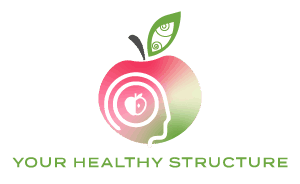Basic FAQ’s About Celiac’s Disease and Gluten Sensitivity
What is Celiac’s Disease (CD)?
Celiac’s Disease is a reaction to gluten. We used to believe that Celiac’s was a relatively rare disease and did not affect many people. However, statistics now estimate that 1 in every 133 Americans suffers from this illness.
What is gluten?
Gluten is a protein that makes breads have a longer shelf life and a sticky, fluffy consistency. Most of us like what it does to bread, making it a bit yummier. The problem is that for many of us, our bodies and our guts have not evolved enough to digest it well and manufacturers have increased the amounts they are putting in, so it has created health problems for many people.
Other places to find gluten:
Gluten is found in wheat, rye and barley. It is important to read labels very carefully because these gluten often lurk in products you wouldn’t suspect. For example: soy sauce and salad dressings.
So what happens when someone reacts to gluten?
The immune reaction occurs in the small intestine where we have micro-villi—small, finger-like protrusions that become flattened over time. The result is mal-absorption of nutrients and something called “leaky gut,” which allows larger size particles to be released into the system than normally would, resulting in symptoms including diarrhea or constipation, abdominal cramping, bloating, gas, and anemia. Gluten sensitivity can also cause people to feel anxious or depressed.
What causes CD?
We’re not exactly sure but it seems that a combination of genes plus environment may be the culprit.
Who has it?
Anyone can get Celiac’s or have sensitivity to gluten.
Studies show that 5-15 percent of the children of people diagnosed with CD also have it.
Studies also show that in 70 percent of identical twins, both twins have it. If a patient has another auto-immune illness, their likelihood of having CD goes up by 25 percent.
How do I know if I have CD?
It often takes five or more doctors to correctly diagnose, and the average time it takes to be properly diagnosed is 10 years. People usually get diagnosed between the ages of 30 and 50. Considerable damage to the body can be done during this time frame.
People who have obvious symptoms will be diagnosed with Celiac’s Disease. However, some people have a silent sensitivity to it so they do not have any outward symptoms, but the gluten is still causing ongoing damage to their bodies.
Some symptoms of CD include:
- Early onset of osteoporosis
- Bloating
- Weight loss
- Fatigue
- Vitamin deficiency
- Irritable bowel syndrome
- Constipation
- Diarrhea
- Unexplained anemia
- Abdominal pain
- Gas
- Weakness
- Anxiety
- Depression
- Neurotransmitter deficiencies
- Autism
- Hyperactivity disorders
Common triggers include:
- Surgery
- Viral infection
- Emotional stress
- Pregnancy
- Childbirth
What should I do?
First, if you suspect that you have a problem with gluten, see your doctor to be tested. There are several ways to be tested, some more intrusive than others.
Second, you will need to stop eating gluten. The good news is that there are many wonderful, tasty products on the market now that are gluten- free. Many restaurants have also become sensitive to people’s needs and have gluten-free choices on their menus. There are many delicious alternative grains to experiment with as well.
When you decide to go gluten- free or realize that you must, it is helpful to have a professional to guide you through the maze of how to be gluten free in a gluten full world and not feel like a pain to your friends and family! I can teach you skills on how to create a smooth transition. If you’d like more information, please contact me for a 30- minute Breakthrough! Consult.
During this session, (a $80.00 value), we will work together to create a crystal clear vision of your health goals.
*Vicki is not a nutritionist or dietician and does not practice as such. She will help you with exploring the barriers and obstacles you may have in your life. She will educate and guide you in creating new, healthy behaviors so you can create and experience success in your life. Creating a clear vision may also include finding the appropriate professionals to help you meet your goals.


Find Support In Your Inbox
Subscribe to Dr. Vicki’s newsletter for updates, inspiration, and recipes that support your healthy life!
Thanks for subscribing!